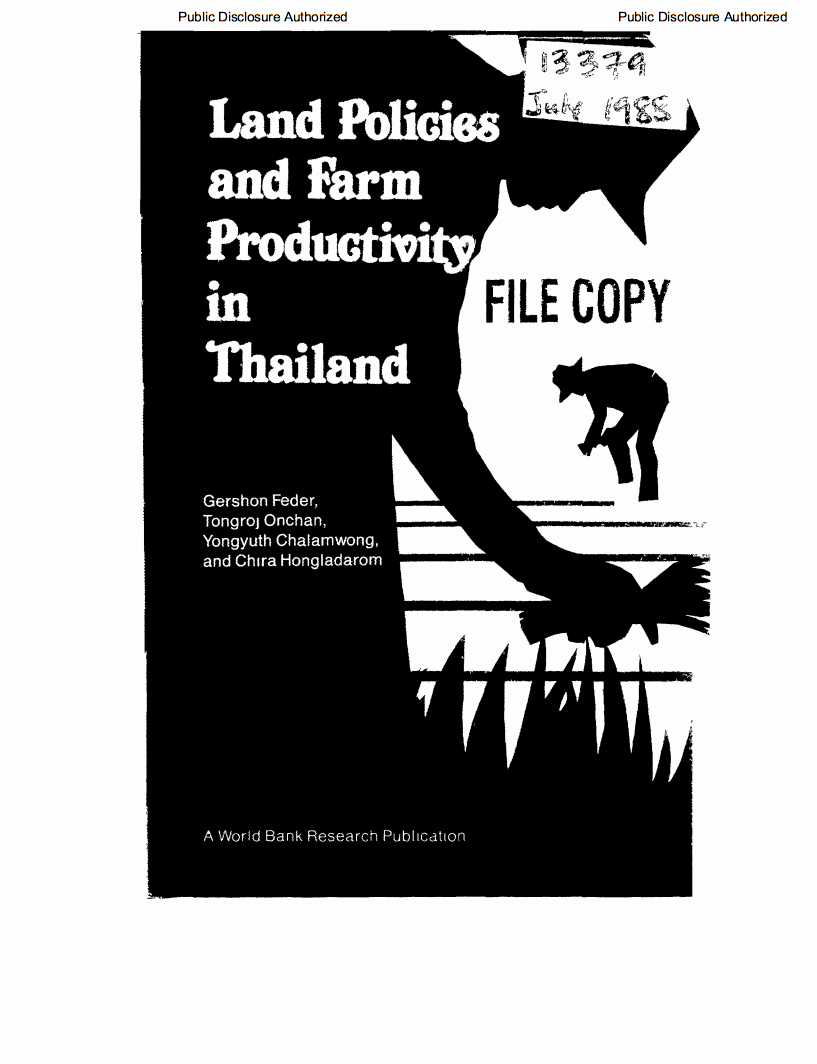The World Bank is a vital source of financial and technical assistance to developing countries around the world. We are not a bank in the ordinary sense but a unique partnership to reduce poverty and support development. The World Bank Group has two ambitious goals: End extreme poverty within a generation and boost shared prosperity.
- To end extreme poverty, the Bank's goal is to decrease the percentage of people living on less than $1.25 a day to no more than 3% by 2030.
- To promote shared prosperity, the goal is to promote income growth of the bottom 40% of the population in each country.
The World Bank Group comprises five institutions managed by their member countries.
The World Bank Group and Land: Working to protect the rights of existing land users and to help secure benefits for smallholder farmers
The World Bank (IBRD and IDA) interacts primarily with governments to increase agricultural productivity, strengthen land tenure policies and improve land governance. More than 90% of the World Bank’s agriculture portfolio focuses on the productivity and access to markets by small holder farmers. Ten percent of our projects focus on the governance of land tenure.
Similarly, investments by the International Finance Corporation (IFC), the World Bank Group’s private sector arm, including those in larger scale enterprises, overwhelmingly support smallholder farmers through improved access to finance, inputs and markets, and as direct suppliers. IFC invests in environmentally and socially sustainable private enterprises in all parts of the value chain (inputs such as irrigation and fertilizers, primary production, processing, transport and storage, traders, and risk management facilities including weather/crop insurance, warehouse financing, etc
For more information, visit the World Bank Group and land and food security (https://www.worldbank.org/en/topic/agriculture/brief/land-and-food-security1
Resources
Displaying 4876 - 4880 of 4907Does more for the poor mean less for the poor? : the politics of tagging
Attempts to achieve "more for the poor" through the use of indicator targeting may in fact mean less for the poor. The efficient use of a fixed budget for poverty reduction may require targeting. However, the use of indicator targeting, using fixed characteristics that are correlated with poverty to determine the distribution of expenditures, will tend to reduce the budget. Ignoring the budget reducing effects can reduce the welfare of the poor as they receive a greater share of a shrinking budget.
Promoting economic growth in Sri Lanka: lessons from East Asia
Why, despite solid progress in human development and in the reduction of consumption poverty, has Sri Lanka's per capita income fallen far behind the dynamic East Asian economies?
Pakistan's agriculture sector : is 3 to 4 percent annual growth sustainable?
For 25 years, agricultural growth has been a key source of the growth in Pakistan's GDP, but the momentum may be running out. Key problems include a crisis in irrigation and the government's overextended role in agriculture. An example of inappropriate government intervention is the provision of subsidies that do not help farmers, either because of rent seeking and inefficiency or because the subsidy (for wheat, for example) helps consumers at the expense of producers.
Adjustment and poverty in Mexican agriculture: how farmers' wealth affects supply response
By and large, it appears that the goals of agricultural reform are being met in Mexico. But measures such as decoupling income supports and price supports or reorienting research and extension could help farmers who cannot afford access to machinery and purchased inputs and services.Lopez, Nash, and Stanton report the results of a study of Mexican farm households using 1991 survey data and a smaller resurvey of some of the same households in 1993.One study goal was to empirically examine the relationship between assets and the output supply function.
Land policies and farm productivity in Thailand
This study assesses the economic implications of land ownership security in rural Thailand. It uses data from this country to rigorously analyze several aspects of land ownership security. It provides both qualitative and quantiative information on the effects of ownership security. The study presents a conceptual model and literature review and is followed by separate discussions on the evolution of land rights in Thailand; the study methodology and the nature of the data; and the credit market.







